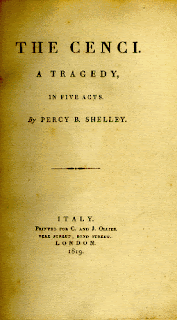Romantic period - 'Drama'
Although we know the Romantic Period as an age of poetry, nonfiction prose forms flourished during the epoch. England throughout this period had a vibrant theatrical culture. Theater criticism ,practiced with flair by Hazlitt and Lamb , emerged as a new prose genre. But there were many restrictions limiting what could be staged and many calls for reform. Dramas had to meet the approval of a censor before they could be performed, a rule in place since 1737. Another restriction was that only the theaters royal( in London Drury Lane and Covent Garden) had the legal right to produce 'legitimate'-spoken word-drama, leaving the other stages limited to entertainments -pantomimes and melodramas mainly -in which dialogue was by regulation always ccombined with music. The theatrical culture's demotion of words might explain why the poets of the era, however stagestruck, found drama uncongenial. Nonetheless, almost all tried their hands at the form , tempted by the knowledge that the plays of certain of their contemporaries- Hannah Cowley and Charles Maturin -had met with immense acclaim. Some of the poet's plays were composed to be read rather than performed (closet dramas), such as Byron's Manfred, Shelley's Prometheus Unbound, and most of Baillie's Plays on the Passions,permitted experimentation with topic and form.
Others were written expressly for the stage ,but their authors were hampered by their inexperience and tendency, exacerbated by the cencorship that encouraged them to seek safe subject matter in the past, to imitate the style of Elizabethan and Jacobean drama.
There were exceptions to this discouraging record. Colerigde's tragedy "Remorse", for instance, was a minor hit and ran for twenty nights in 1813.
The most capable dramatist among the poets was ,surprisingly, Percy Shelley. His powerful tragedy "The Cenci" (1820) , the story of a monstrous father who rapes his own daughter and is murdered by her in turn , was deemed unstageable on political rather than artistic or technical grounds. It had no chance of getting by the Examiner of Plays; indeed, by thematizing the unspeakable topic of incest , Shelley predicted his own censoring.
(The Norton Anthology of English Literature)


